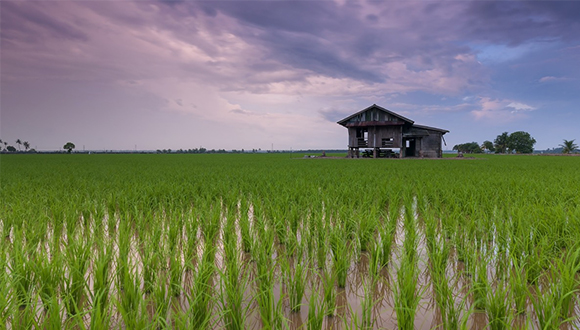Plausible rice yield losses under future climate warming
Josep Peñuelas leads a study which suggests that rice yield will be more senstive to climate warming. Adaptatation polices to climate change are urgently needed to reduce its effect on rice yield.

Rice is the staple food for more than 50% of the world’s population. Reliable prediction of changes in rice yield is thus central for maintaining global food security. This is an extraordinary challenge.
In a new study in the journal Nature Plants researchers compare the sensitivity of rice yield to temperature increase derived from field warming experiments and three modelling approaches: statistical models, local crop models and global gridded crop models.
Field warming experiments produce a substantial rice yield loss under warming, with an average temperature sensitivity of −5.2 % per degree of warming. Local crop models give a similar sensitivity (−6.3 %), but statistical and global gridded crop models both suggest less negative impacts of warming on yields (−0.8 % and −2.4 7%, respectively).
Using data from field warming experiments, researchers further propose a conditional probability approach to constrain the large range of global gridded crop model results for the future yield changes in response to warming by the end of the century (from −1.3% to −9.3% per degree of warming). The constraint implies a more negative response to warming (−8.3 %) and reduces the spread of the model ensemble by 33%. This yield reduction exceeds that estimated by the International Food Policy Research Institute assessment (−4.2 to −6.4% ).
“Our study suggests that without CO2 fertilization, effective adaptation and genetic improvement, severe rice yield losses are plausible under intensive climate warming scenarios” said Prof. Josep Penuelas, CREAF and CSIC researcher.
“The long-term perspective of climate change allows us to prepare agricultural production systems for this challenge, but suitable policies must be put in place in the near future, given that targeted research on adaptation options and their large-scale implementation will require considerable time”, explained Peñuelas.
ARTICLE
Zhao, C., Peñuelas, J., et al. (2016). “Plausible rice yield losses under future climate warming”. Nature Plants. Volume 3, Artcile number 16202. DOI: 10.1038/nplants.2016.202






